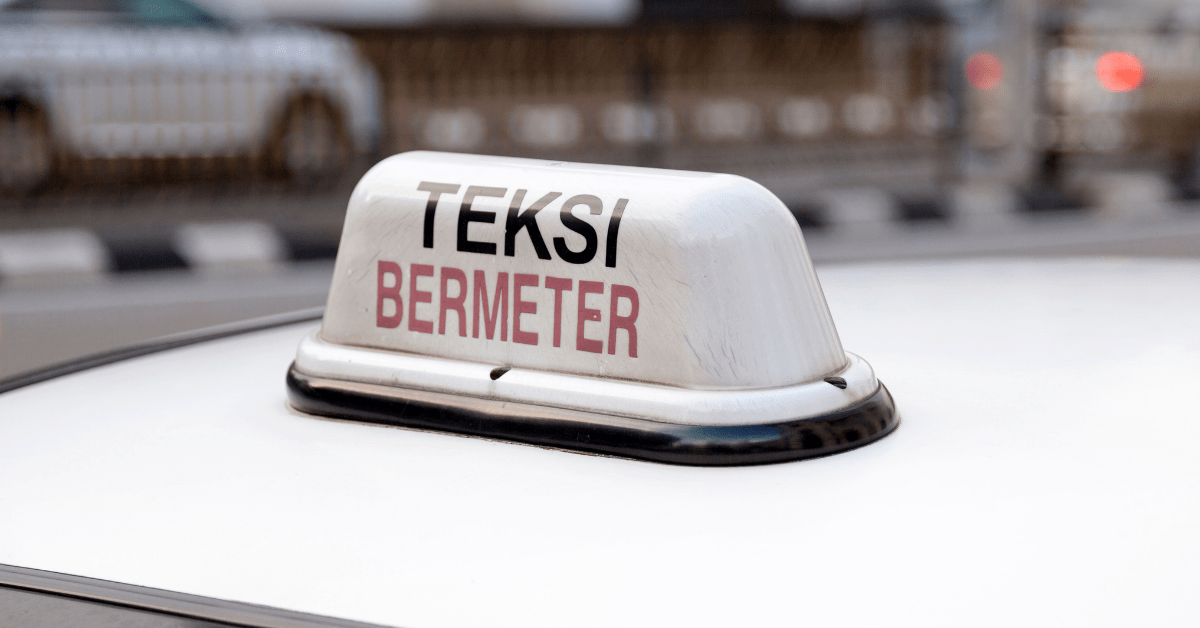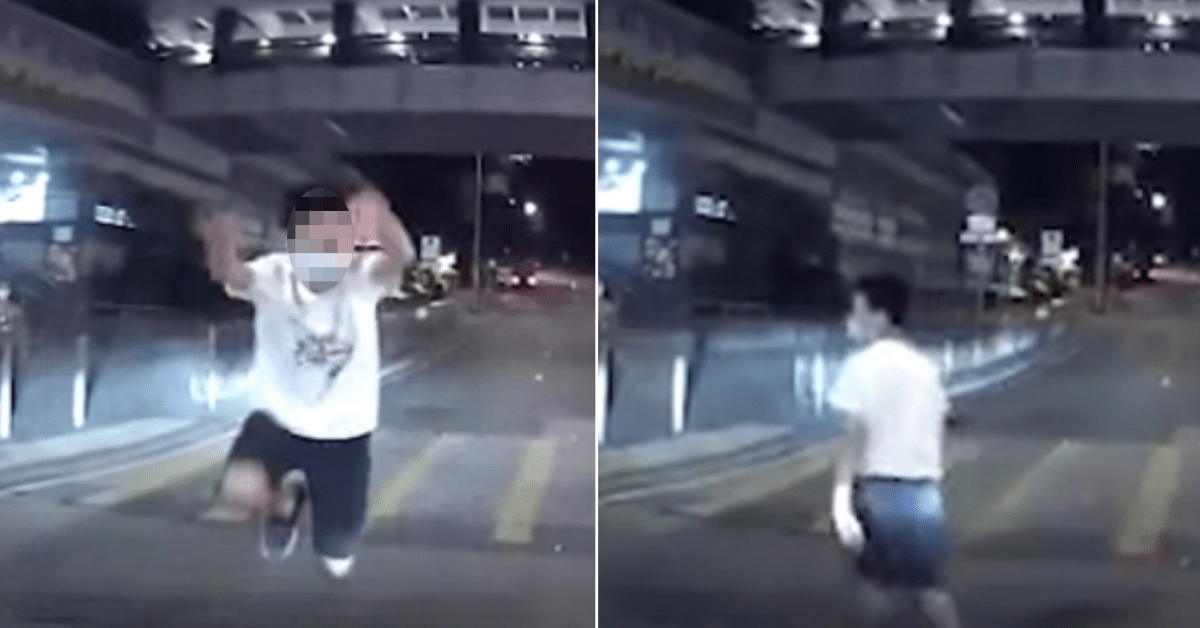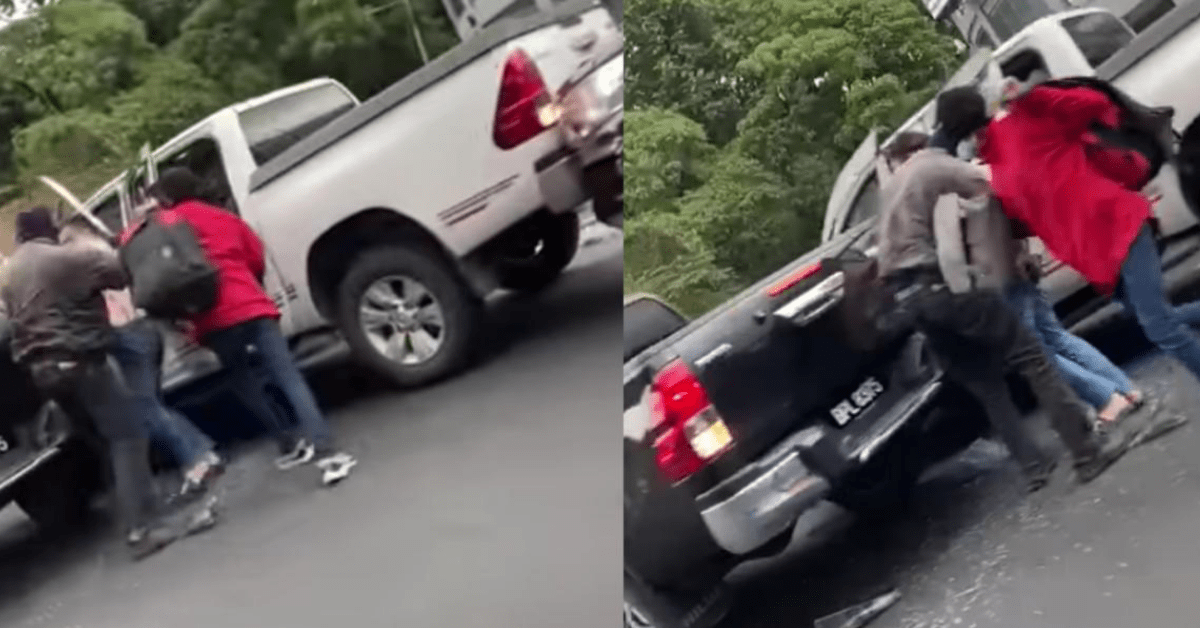5 Road Scams to Look Out for in Malaysia!
Key Points
- Tow truck scam
- Taxi fare scam
- Cash for Crash scams
- Roadside scams
- “Where’s my mommy?” scam
- How to deal with road scams
If you are like most people, you probably think of Malaysia as a warm, tropical paradise. You may not know that aside from being a culturally-rich country, it is also home to some clever road scams. It is easy to tell someone to be very careful when driving. Still, unfortunately, even the most careful drivers can fall prey to scammers, who often use clever tricks to take advantage of unsuspecting drivers. Before you head out next time, make sure to read up on these tricks used by scammers in Malaysia so you can avoid them.
1. Tow truck scam

Scams on the road are unfortunately all too common, and one of the most prevalent types of scams is the infamous tow truck scam. This scam involves leaving oil, metal nails, or glass shards on the road and waiting for drivers to fall into the trap. If you do get into an accident due to this trap, the scammers will suddenly appear out of nowhere and offer to provide towing services at a ridiculous price that can cost RM2,000 to RM5,000. They will try to pressure you into using their services so that they end up forking over your money out of anxiety and desperation.
In a situation where you have no other choice but to give consent for them to tow your car, they will take advantage of the situation by bringing it somewhere else instead of going through panel workshops approved by your insurance companies – which means another “payment” to “release” your car once you reach the destination. Unfortunately, given its prevalent nature, anyone driving in Malaysia should be aware of this notorious scam and do everything to avoid falling victim to it.
2. Taxi fare scam

Taxi fare scam is one of the oldest road scams. Have you ever tried taking a taxi back home, and the driver refuses to use the meter to calculate your fare and then tries to charge you an exorbitant amount? Exactly. Most of us have been victims of this scam at least once. They usually use the ‘broken meter’ excuse to scam you out of your money.
3. Cash for Crash scams

Scammers are always finding ways to trick people out of their hard-earned cash, one of which is the Cash for Crash scam. It is also known as ‘fake accident scam’. Here is how it works: scammers stage accidents and then claim insurance money by exaggerating the damage. There are 5 types of Cash for Crash scams in Malaysia:
- Emergency brake scam
Have you ever been driving along and had someone hit on their brakes in front of you? It IS a scary experience, and it can often lead to an accident. Unfortunately, scammers use this tactic as a way to scam people. They purposely speed up their car and hit on their brakes numerous times until you hit the back of their car. To extort money from you for medical and repair costs, they will usually claim that they have whiplash or some other injuries that require immediate medical attention.(For your information, whoever hits a vehicle from the back will always be at fault in most cases. However, you may not be entirely at fault for the collision if you have witnesses or proof of what actually happened!)
- Reverse accident scam
In this scam, the scammer’s car supposedly “suddenly appears” behind you when you are reversing, making it seem like you accidentally hit their car. When you inspect the damage, you might notice that your car is barely dinged or scratched, while the scammer’s car appears to be literally falling apart with major damage. This seems like a very obvious scam, but unsuspecting victims continue to fall for it, losing thousands of ringgits.You might consider going to the police station, but in some cases, going to the police station may not be the best option. They may try to pressure you to go to their preferred police station instead, as they may have some “connections” with certain officers (allegedly) at this station, allowing them to scam you out of the “summons”.
- Motorcycle accident scam
Similar in nature to the reverse accident scam, a motorcyclist will purposefully get hit by you as part of their scam. Using the same trick as the emergency brake scam, they will then claim to have been seriously injured in the accident, often using tactics like pulling at their chest or groaning loudly to give the impression that they are in pain to extort money from you for the supposed costs of medical treatment.
- ‘You jump, I jump’ scam
‘You jump, I jump’ scam (we gave it this name) has been popular in China for so long, and lately, it has made its debut in Malaysia. This scam is another variation of the Cash for Crash scam. Instead of purposely damaging their car for insurance fraud, the scammer puts a twist on it – they will jump in front of your car to intentionally get hit by you and then claim that they were injured in the accident and demand money from you to cover their medical expenses. Can you believe it? We have all heard of some crazy scams before, but this one takes the cake. If you are not careful, you could pay thousands of ringgits for their so-called medical expenses. So be on the lookout for this new scam.
- Workshop scam
This scam is the continuation of the Cash for Crash scam. After their car is supposedly badly damaged by you, they will insist that you go to their chosen workshop to get it fixed. But here is the thing: their mechanic is in on the scam. The mechanic will exaggerate the damage and charge you an absurd amount of money to fix it.
These scams are becoming more and more common, as they can be challenging to prove that the accident was not just a simple mistake. So, if anyone ever tries to pull any of these tricks on you, stay alert and prudent so that they cannot take advantage of you!
4. Roadside scams

Roadside scams refer to scams that happen on roadsides. A few known roadside scams are listed below:
- Smoking wheel scam
Imagine this scenario: You are driving along the road, and suddenly, a motorcyclist waves at you and points to your smoking wheels. Alarmed, you immediately pull to the side of the road. The motorcyclist then “helps” call a “mechanic” to get your wheels checked. The “mechanic” would go as far as disabling the braking system while “checking” for the cause of the smoke. After doing so, he will then ask you to test your brakes, which are now not functioning. Being the “nice” guy, he offers to help you get a new spare part. Of course, after everything is done, he will present you with his very expensive invoice.
- Fake mishap scam
Alas, this scam has been happening for years and continues to be one of the worst forms of scams out there. Scammers will often use an accident as a ploy to stop you on the side of the road. They will typically wave at you and pretend that their car has broken down or as if they are in distress in hopes that they could get assistance. They might appear distressed at first, but they will suddenly turn hostile and threaten you with a gun or a knife after a while.Another variation of this scam is pretending to have a “broken down” car and asking you for a ride, so they will rob you when you agree to offer a ride!
- Oil cap scam
Are you curious about what happens if the smoking wheel and the fake mishap scam meet? An oil cap scam happens. If you are driving and someone (usually a motorcyclist) waves and points to indicate that you have forgotten to close your fuel cap, it is best just to drive away. The scammers will attempt to rob you once you stop and exit your vehicle.
- Windscreen scam
Scammers are getting more creative these days, and the latest scheme involves throwing eggs or paint at your windscreen or pasting flyers or stickers on your windscreen. Either way, the idea is that you will be driving and suddenly have your view obscured, so you will stop to clean it off. Of course, while you are doing that, they will approach you and try to rob you.
Unfortunately, scams like these are all too common on Malaysian roads, and it is vital for drivers to always be alert and aware of potential dangers to stay safe on the road.
5. “Where’s my mommy?” scam

Scams are getting more sophisticated, and the latest scam to hit the streets is the so-called ‘lost child scam’, or as we call it – the “Where’s my mommy?” scam. A young child approaches you in a parking lot in this scam and claims to be lost or abandoned. The child will then typically ask for help getting back home, usually making up an elaborate story about how they got separated. When you offer to help, you will be redirected to an isolated location where the “parents” will then rob you. Needless to say, this trick is highly manipulative, preying on people’s natural instinct to provide help and assistance to those in need.
How to deal with road scams
- Stay calm: Resist the high-pressure tactics of the scammers. Do not let them take advantage of you!
- Get insured: If you are not careful, it is easy to get scammed – and if you do not have insurance, or if your policy does not cover the type of scam you have fallen victim to, they will try to get you to pay out of pocket. Your insurer will handle all the investigation and paperwork for you. And if you do find yourself in the unfortunate situation of being scammed, at least you will not be out any money. You may even be entitled to some money back from the scammer if they are at fault for causing the accident.
- The easiest way to keep yourself safe is by remembering this simple tip: always call your insurance provider first. By calling your insurance provider right away, you can get the help and guidance you need to handle any situation appropriately.
- Only use your insurer’s tow truck: If anything happens, never settle for any tow truck services that are most likely only looking to make a quick buck at your expense.
- If you are involved in an accident, exchange insurance information with the other driver and collect evidence (eyewitness, photos, and videos of the damage). This will help protect you if the other driver tries to claim that the accident was your fault.
- Invest in a dashcam: One of the best investments for you and your car is a dashcam (a little black box camera that can be attached to your car’s dashboard or windscreen). They record what happens on the road in front of you, including any accidents that happen while driving.
- Avoid driving in:
- Areas where large motorcyclists may be gathered together.
- Areas where emergency help is hard to get.
- Do not give anything: Do not give the scammers any money, and do not sign any documents without reading them first.
- Call a trusted mechanic: Do not follow the advice of strangers or go to the workshop of their choosing.
- Do not stop:
- If you are driving and someone throws something at your car. Keep your car doors locked and your windows up.
- For strangers. Drive away if you happen to be approached by a scammer.
- Call the authority: For the “Where’s my mommy?” scam, the best thing is to call the authority for further action. Be sure to collect information about the lost child and their parents!
- Do your research: Be informed on which police station has the best track record for handling car accidents.
Verdict
Scammers are everywhere, and Malaysia is no exception. While we hope you never have to experience a scam, it is essential to be aware of the different types. Scammers are getting more innovative and more creative in their schemes! Be alert when you are on the roads, do not let yourself be scammed – or else risk losing all your hard-earned money to crafty scammers! Remember, these scams are constantly changing and evolving, so staying informed is essential. Make sure to spread the word to your friends and family so they can be aware too!
To get insured, click here! We will help you find the best car insurance for you by comparing car insurance from different insurers in 3 steps, within 5 minutes, for FREE.


